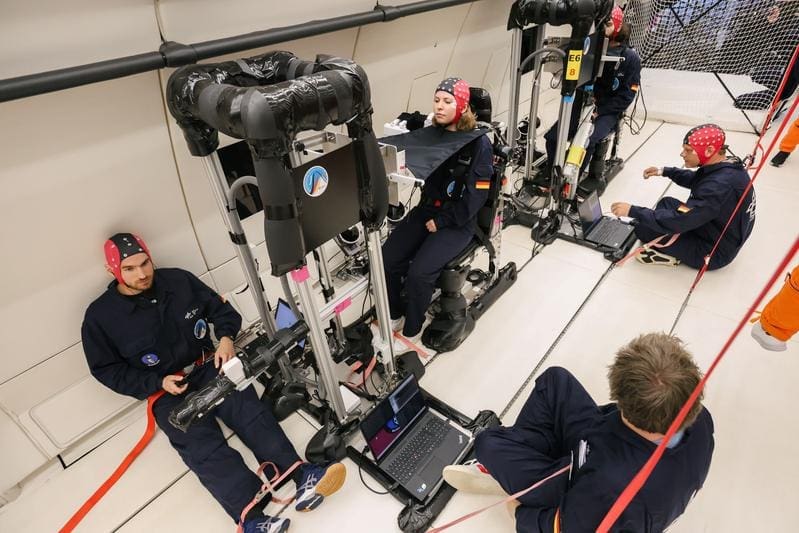Exoskeleton training for fine motor tasks successfully tested in space
A research team from the German Research Center for Artificial Intelligence (DFKI) and the University of Duisburg-Essen (UDE) tested a robotic exoskeleton to train fine motor tasks under space conditions during the 44th parabolic flight campaign of the German Space Agency at DLR in Bordeaux from June 8 to 13, 2025. The aim is to develop realistic and cost-effective training methods for astronauts, as weightlessness makes activities such as repairs or experiments more difficult.

As part of the “MikroBeM” project and the INNOSpace network “Space2Health”, an active exoskeleton was used that compensates for the weight of the arms and thus simulates movements similar to weightlessness. During three parabolic flights in the Airbus A310 Zero G, each of which generated microgravity for around eleven minutes, six test subjects performed fine motor tasks. They were asked to hit a target on a touchscreen with their index finger while muscle and brain activity as well as movement trajectories were recorded. Half of the participants had previously trained with the exoskeleton, the other half had not.
The experiment went smoothly and 276 of 279 planned data sets were successfully collected. The results should show whether exoskeleton training enables the transferability of learned skills to weightlessness and can reduce the workload of astronauts. In the long term, the technology could not only improve space missions, but also promote applications in rehabilitation and robotics. Project manager Marc Tabie emphasized the successful procedure and the high-quality database as a basis for further analyses.
Read also:
Astronaut Omics: What Elon Musk can learn from Daniela Bezdan – MedLabPortal
Editorial office: X-Press Journalistenb├╝ro GbR
Gender note. The personal designations used in this text always refer equally to female, male and diverse persons. Double/triple references and gendered designations are avoided in favor of better readability.




